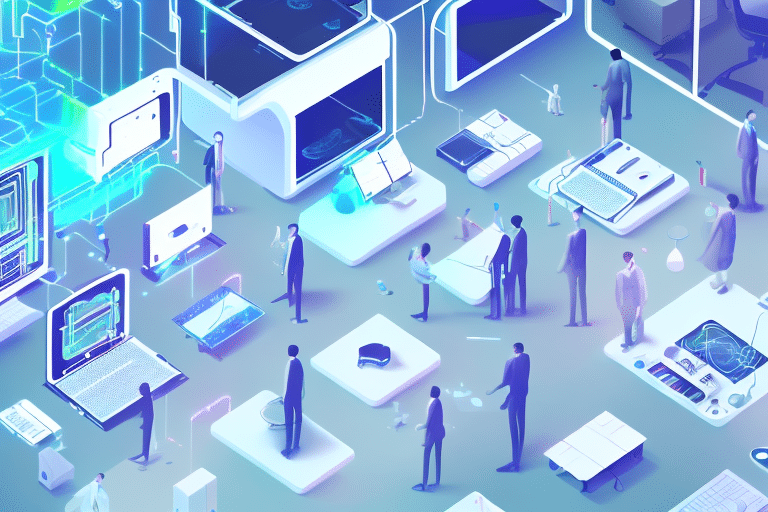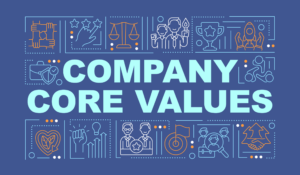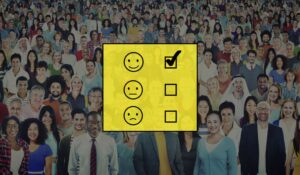The field of Human Resources (HR) has always been at the forefront of innovation and change, constantly exploring new ways to create more efficient and effective processes. In recent years, there has been a growing interest in harnessing the power of Artificial Intelligence (AI) to reshape the HR landscape. AI has the potential to revolutionize HR practices, enabling organizations to streamline operations, enhance decision-making, and create a more engaging employee experience.
Understanding the Intersection of AI and HR
Before delving into the specific applications and benefits of Artificial Intelligence in HR, it is important to define what AI means in the context of HR. AI refers to the development of computer systems that are capable of performing tasks that would typically require human intelligence. These systems are designed to analyze vast amounts of data, recognize patterns, and make predictions or recommendations based on the analysis.
AI in Human Resources is not just limited to the automation of administrative tasks. It encompasses a wide range of applications, from recruitment and selection to employee engagement and training. By leveraging AI tools and technologies, HR professionals can focus on strategic initiatives and provide a more personalized and efficient experience to employees.
Defining AI in the Context of HR
In the context of HR, AI can be defined as the use of intelligent systems and algorithms to analyze data and automate various aspects of HR functions, such as recruitment, training, and employee engagement.
AI-powered recruitment tools have revolutionized the hiring process. These tools can scan resumes and identify the most qualified candidates based on specific criteria set by the HR department. By automating the initial screening process, AI eliminates the need for manual review of hundreds or even thousands of resumes, saving HR professionals valuable time and effort.
Furthermore, AI-powered chatbots can conduct initial interviews with candidates, asking pre-determined questions and assessing their responses. This not only saves time but also ensures a fair and unbiased selection process, as the chatbots are programmed to evaluate candidates solely based on their qualifications and responses, without any bias or prejudice.
The Role of AI in Modern HR Practices
AI plays a crucial role in modern HR practices by automating time-consuming and repetitive tasks, allowing HR professionals to focus on more strategic initiatives. For example, AI-powered recruitment tools can scan resumes, identify the most qualified candidates, and even conduct initial interviews via chatbots. This not only saves time but also ensures a fair and unbiased selection process.
In addition to recruitment, AI can also be utilized in employee engagement and training. AI-powered chatbots can provide personalized learning experiences to employees, tailoring training materials and resources based on individual needs and preferences. This not only enhances the learning process but also increases employee satisfaction and engagement.
Moreover, AI can analyze employee data to identify patterns and trends related to employee performance, satisfaction, and retention. By analyzing this data, HR professionals can gain valuable insights into the factors that contribute to employee success and satisfaction, allowing them to develop strategies to improve overall organizational performance.
Overall, this intersection has the potential to revolutionize the way HR functions are performed. By automating administrative tasks, providing personalized experiences to employees, and analyzing data for valuable insights, AI enables HR professionals to be more strategic and efficient in their roles, ultimately contributing to the success of the organization as a whole.
The Impact of AI on HR Functions
AI has had a significant impact on various HR functions, transforming the way organizations approach talent acquisition, employee engagement, and training and development.
AI in Recruitment and Selection
One of the areas where AI has made a significant impact is in recruitment and selection. AI-powered tools can help HR professionals streamline the hiring process by automatically screening resumes, identifying potential candidates, and conducting initial assessments. For example, chatbots can engage with candidates in real-time, asking relevant questions and providing information about the company. This not only saves time but also ensures a consistent and unbiased candidate experience.
In addition to automating the initial screening process, AI can also assist HR professionals in analyzing large volumes of applicant data. By using machine learning algorithms, AI can identify patterns and trends in candidate profiles, helping HR professionals make more informed decisions. For instance, AI can analyze factors such as education, work experience, and skills to predict a candidate’s potential fit within the organization.
AI in Employee Engagement and Retention
AI tools can also play a crucial role in enhancing employee engagement and retention. For example, chatbots can be deployed as virtual assistants, providing employees with instant support and information. They can answer frequently asked questions, provide updates on company policies, and assist with onboarding processes. This not only improves employee satisfaction but also allows HR professionals to focus on more strategic initiatives.
Furthermore, AI can be used to analyze employee data and identify patterns that may indicate potential turnover. By leveraging predictive analytics, HR professionals can proactively address employee concerns and implement retention strategies. For instance, AI algorithms can analyze factors such as employee performance, job satisfaction, and feedback to identify potential flight risks. HR professionals can then intervene and take appropriate measures to retain valuable talent.
AI in Training and Development
Training and development is another area where AI can make a significant impact. By leveraging AI-powered tools, organizations can provide personalized and adaptive learning experiences to employees. For example, AI-powered chatbots can deliver training content in a conversational manner, allowing employees to ask questions and receive immediate feedback. This not only improves the effectiveness of training programs but also enhances employee engagement and reduces the time required for traditional classroom-based training.
In addition to delivering training content, AI can also assist in assessing employee performance and identifying skill gaps. By analyzing data from various sources, such as performance reviews, training records, and project outcomes, AI algorithms can provide insights into areas where employees may need additional development. This allows HR professionals to tailor training programs to individual needs, ensuring that employees receive the right knowledge and skills to excel in their roles.
Overall, AI has revolutionized HR functions, enabling organizations to streamline processes, enhance employee engagement, and deliver more effective training and development programs. As AI continues to advance, its potential to transform HR practices will only grow, leading to more efficient and strategic HR operations.
The Benefits of Integrating AI in HR
Integrating AI in HR offers numerous benefits for organizations and employees alike. By leveraging AI-powered tools and technologies, organizations can enhance efficiency, improve decision-making, and create a more engaging employee experience.
Enhancing Efficiency and Productivity
AI automates time-consuming and repetitive tasks, allowing HR professionals to focus on more strategic initiatives. This not only saves time but also improves efficiency and productivity. For example, AI-powered tools can automate the scheduling of interviews, generate personalized feedback for candidates, and facilitate the onboarding process.
In addition to these benefits, AI can also streamline the recruitment process. With AI-powered algorithms, organizations can quickly sift through large volumes of resumes, identifying the most qualified candidates based on specific criteria. This not only speeds up the hiring process but also ensures that HR professionals are able to identify the best talent for the organization.
Furthermore, AI can assist in talent management by analyzing employee performance data. By identifying patterns and trends, AI can help HR professionals pinpoint areas for improvement and provide targeted training and development opportunities. This not only enhances individual performance but also contributes to the overall growth and success of the organization.
Improving Decision Making
AI provides HR professionals with access to real-time insights and predictive analytics, empowering them to make informed decisions. For example, AI tools can analyze employee data to identify patterns and predict future trends. This allows HR professionals to proactively address potential issues and implement strategies to improve employee satisfaction and retention.
In addition to these benefits, AI can also assist in diversity and inclusion efforts. By analyzing data on employee demographics and performance, AI can help organizations identify any biases or disparities and take appropriate action to create a more inclusive and equitable workplace. This not only improves the overall employee experience but also enhances the organization’s reputation and attractiveness to top talent.
Furthermore, AI can assist in workforce planning by analyzing external market data and internal employee data. By identifying future skill gaps and talent needs, AI can help HR professionals develop effective recruitment and retention strategies. This ensures that the organization has the right talent in place to achieve its strategic objectives and remain competitive in the market.
Enhancing Employee Experience
By leveraging AI-powered tools, organizations can create a more engaging and personalized employee experience. For example, AI-powered chatbots can provide employees with instant support and information, improve communication, and create a sense of belonging. Additionally, AI can help organizations tailor learning and development programs to individual needs, providing employees with personalized recommendations and feedback.
In addition to these benefits, AI can also assist in employee wellness initiatives. By analyzing data on employee well-being, AI can help organizations identify potential areas of concern and implement targeted wellness programs. This not only improves employee health and happiness but also contributes to higher levels of productivity and engagement.
Furthermore, AI can assist in career development by analyzing employee skills and interests. By providing personalized recommendations for training and advancement opportunities, AI can help employees navigate their career paths and achieve their professional goals. This not only enhances employee satisfaction but also contributes to higher levels of retention and loyalty.
Challenges and Solutions in Implementing AI in HR
While the benefits of integrating AI in Human Resources are clear, there are also challenges that organizations may face when implementing AI-powered solutions. Addressing these challenges is crucial to ensure the successful adoption and ethical use of AI in HR.
Addressing Data Privacy Concerns
One of the main concerns in implementing AI in HR is ensuring the privacy and security of employee data. Organizations need to establish clear policies and procedures for the collection, use, and storage of employee data. Additionally, measures should be put in place to protect data from unauthorized access and ensure compliance with data protection regulations.
Organizations can implement encryption techniques to secure employee data and restrict access to authorized personnel only. Regular audits and assessments can be conducted to identify any vulnerabilities in the system and take necessary actions to mitigate them. By prioritizing data privacy, organizations can build trust with their employees and ensure the responsible use of AI in HR.
Overcoming Resistance to Change
Resistance to change is another challenge that organizations may encounter when implementing AI in HR. Employees may fear that AI will replace their jobs or make their roles less significant. To overcome this, organizations need to communicate the benefits of AI to employees, involve them in the decision-making process, and provide training and support to ensure a smooth transition.
By involving employees in the implementation process, organizations can address their concerns and fears. Training programs can be designed to help employees understand how AI can augment their work and improve efficiency. It is essential to emphasize that AI is not meant to replace human employees but to assist them in their tasks, allowing them to focus on more strategic and value-added activities.
Ensuring Ethical Use of AI
Finally, organizations need to ensure that AI is used ethically and responsibly in HR practices. This includes ensuring fairness and transparency in the algorithms and models used, avoiding bias in decision-making, and regularly monitoring and evaluating the impact of AI on employees.
Organizations can establish ethical guidelines for the development and use of AI in HR. These guidelines can include measures to prevent bias, such as diverse and representative training data sets and regular audits of the AI systems. Transparency can be achieved by providing employees with clear explanations of how AI is used in decision-making processes. Regular monitoring and evaluation can help identify any unintended consequences of AI and allow organizations to make necessary adjustments.
In conclusion, AI has the potential to revolutionize HR practices, enabling organizations to streamline operations, enhance decision-making, and create a more engaging employee experience. By understanding the intersection of AI and HR, organizations can leverage AI-powered tools and technologies to transform the way they approach talent acquisition, employee engagement, and training and development. However, it is crucial to address the challenges associated with implementing AI in Human Resources, such as data privacy concerns, resistance to change, and ensuring ethical use. By addressing these challenges, organizations can harness the full power of AI to drive success in the HR landscape.













